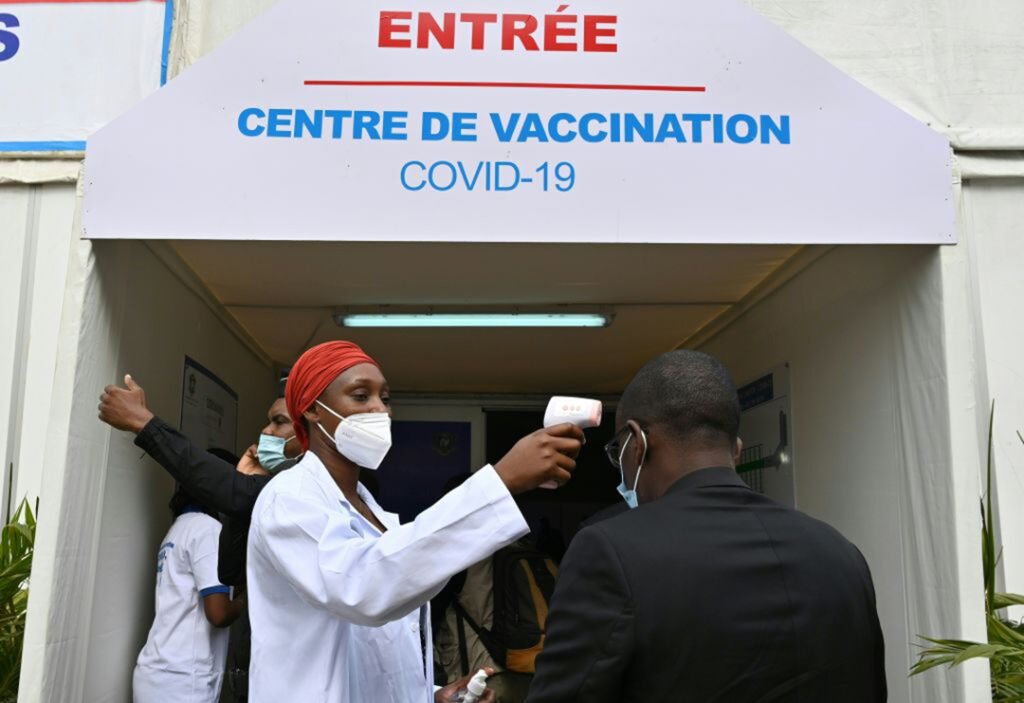ADF STAFF
Jean-Baptists Yaté Elélé knows how dangerous misinformation can be.
The logistics director of a vaccination center in Abidjan, Côte d’Ivoire, watched in April 2020 as a Facebook post suggested a nearby COVID-19 testing center was part of a government conspiracy to kill local people.
Then he watched in horror as residents destroyed the building.
“There is so much fake news,” Yaté told France24. “People inform themselves online. … Disinformation made people revolt.”
The social media claim was obviously false, but COVID-19 misinformation has spread in parallel with the virus across the continent.
Now, Africa is riding a wave of vaccine hesitancy fueled by safety fears, distrust of government and misinformation — some of it coming from government officials.
On March 10, the Africa Centres for Disease Control and Prevention (Africa CDC) published a survey conducted between August and December 2020 to gauge public opinion on COVID-19 vaccines. The results highlight the highs and lows of Africa’s public health information roller coaster.
“We surveyed over 15,000 respondents from 15 countries,” two of the survey authors wrote for online network The Conversation. “Of these, 42% reported that they had been exposed to a lot of disinformation, with men (45%) having seen more disinformation than women (38%). Those who had the most exposure to social media were the most likely to be reluctant about taking a COVID-19 vaccine if it were offered.
“Nearly 50% of the respondents believed that COVID-19 was planned by a foreign actor. Of these, 71% pointed to China.”
Most people said they would be willing to take the vaccine.
“Despite the exposure to misinformation and disinformation, the study revealed that four out of five respondents (79%) would take an approved COVID-19 vaccine,” the authors wrote. “This ranged from a high of 94% willingness in Ethiopia to a low of 59% in the Democratic Republic of Congo.”
Since vaccines began arriving on the continent in February 2021, however, enthusiasm has been low in some places.
Yaté saw firsthand how bad information has hampered Côte d’Ivoire’s vaccine rollout.
His vaccination center in Abidjan’s Yopougon neighborhood is set up to administer 200 to 300 shots a day. But rows of chairs for patients often sit empty. On one day in March, shortly after the vaccine campaign had begun, only 14 doses were administered.
Every Ivoirian has an opinion. Some, like Anderson Dago, an unemployed 25-year-old, even know where they got their information.
“I read on social media that people who are vaccinated get controlled by 5G,” he told Frace24.
He is not the only person in Yopougon who has taken in false information about the vaccine and the disease.
Camara Djaka Sissoko runs a small boutique. She isn’t sure whether COVID-19 exists.
“White people cannot even handle a bit of malaria,” she told France24. “We are tougher. We can resist COVID-19.”
Côte d’Ivoire received 504,000 doses of vaccine from COVAX, a global vaccine equity initiative coordinated by the World Health Organization and others. The doses arrived in late February and will expire in September.
By April 11, just over half the vaccines — 252,317 — had been used. The Indian embassy also provided 50,000 vaccines to Côte d’Ivoire. They were sitting in a refrigerator with an October expiration date.
Malawi faces a similar vaccine plight. Sociologist Innocent Komwa thinks the issue is apprehension that could be relieved by a campaign to counter misinformation.
“We have a lot of adults who are stuck in the contemplative phase, who could use a little push to make up their minds,” he told Agence France-Presse. “Unfortunately, the government and health officials have not done much to counter the fake news and rumors.”

